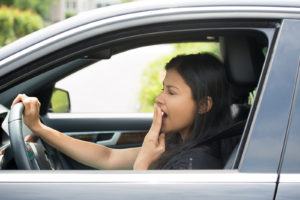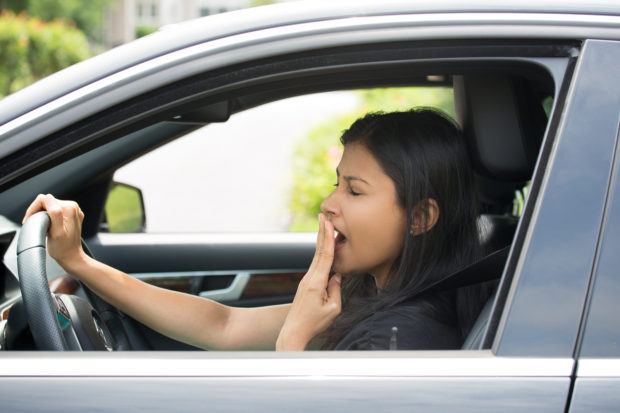
More than half (56 percent) of licensed teens admit to having driven when they felt too tired to drive their best, and almost a third (32 percent) are driving drowsy at least sometimes, according to new research conducted by Liberty Mutual Insurance and SADD (Students Against Destructive Decisions).
Worse, nearly 1 in 10 teens said they have completely fallen asleep at the wheel while driving.
“Drowsiness impairs driving performance and reaction time,” said William Horrey, Ph.D., principal research scientist at the Liberty Mutual Research Institute for Safety. “When our brains are tired, our attention, judgment and ability to act are greatly impacted, which has the potential for disaster on the road, particularly if there’s inclement weather or a critical situation requiring quick response. The situation can be exacerbated when the driver is a teenager without much experience.”
Among the study’s other findings:
- 39 percent of teens surveyed said that household and family responsibilities impacted their sleep, but only 11 percent of parents believed this contributed to their teens not getting an adequate amount of rest.
- 42 percent of teens said they aren’t getting enough sleep due to early morning activities.
- 56 percent of teens have taken measures to wake up when driving, such as opening up the windows.
- Only 34 percent of teens said they have called for a ride instead of driving when they’re too tired.
Source: Liberty Mutual Insurance





















 Retired NASCAR Driver Greg Biffle Wasn’t Piloting Plane Before Deadly Crash
Retired NASCAR Driver Greg Biffle Wasn’t Piloting Plane Before Deadly Crash  What Analysts Are Saying About the 2026 P/C Insurance Market
What Analysts Are Saying About the 2026 P/C Insurance Market  Nearly 26.2M Workers Are Expected to Miss Work on Super Bowl Monday
Nearly 26.2M Workers Are Expected to Miss Work on Super Bowl Monday  20,000 AI Users at Travelers Prep for Innovation 2.0; Claims Call Centers Cut
20,000 AI Users at Travelers Prep for Innovation 2.0; Claims Call Centers Cut 





